Lottery Tickets as Treasures: When the Game Becomes History
Discover how old and historical lottery tickets have transitioned from simple bets to rare collectibles in the collector's market.
The Lottery House
tags:
history
curiosity
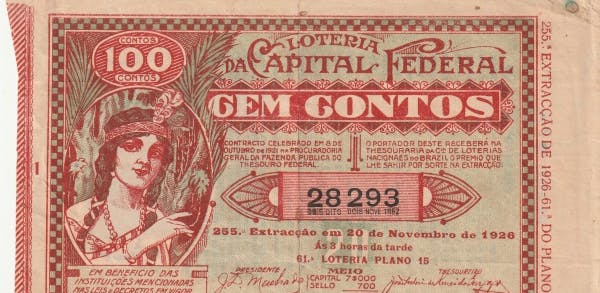
From Bets to Relics: The Fascination with Lottery Tickets
Over the centuries, lottery tickets have transcended their original purpose of offering a chance to win prizes. Today, many of these tickets have become valuable relics, cherished by collectors around the world. Whether due to their connection to historical events, artistic design, or rarity, lottery tickets represent a fascinating intersection of culture, history, and entertainment.
In this article, we explore how old lottery tickets entered the collectibles market, the factors that determine their value, and the incredible stories that turned pieces of paper into true treasures.
The Beginning of Lottery Ticket Collecting
Lottery tickets have existed for centuries, with records of lotteries held in Ancient China during the Han Dynasty (205–187 BCE). In Europe, lottery tickets gained popularity during the Renaissance, when cities like Genoa and Venice held raffles to raise funds. These tickets, often adorned with artistic elements and elaborate calligraphy, captivated collectors intrigued by their history and aesthetics.
In the 19th century, lotteries began to fund public projects, such as building bridges, theaters, and schools. Tickets associated with these initiatives, especially those featuring unique designs or the signatures of historical figures, are the most sought after in today's market.
Factors That Determine Ticket Value
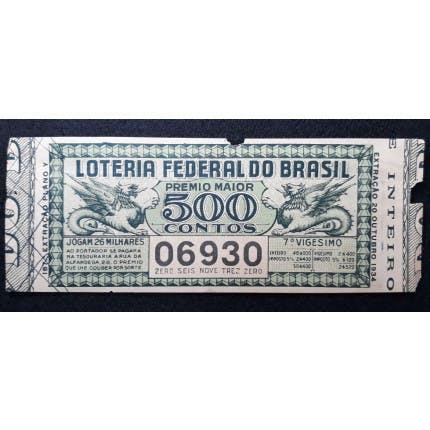
Collectors assess lottery tickets based on several criteria:
Rarity: The fewer tickets issued, the higher their value. An example is the ticket from the first official lottery in the United States, held in 1776 to finance the War of Independence. These tickets, printed with intricate engravings, are extremely rare and highly valuable.
Condition: Well-preserved tickets, free of tears or stains, are more desirable. The quality of the paper and the durability of the design also affect pricing.
Historical Context: Tickets tied to significant historical events or sold during notable periods, such as the Great Depression or world wars, attract collectors interested in their stories.
Artistic Design: Some tickets feature stunning illustrations or are signed by renowned artists, making them unique pieces.
Iconic Prizes: Tickets that resulted in significant wins or legendary jackpots also stand out.
Iconic and Valuable Ticket Examples
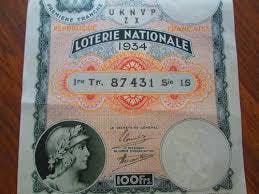
First State Lottery in the U.S. (1776):
These tickets were used to fund the American Revolution. A well-preserved ticket sold for over $50,000 at a recent auction.
British State Lottery (1809):
Created to raise government funds, these tickets are prized for their artistic engravings and their connection to the Napoleonic era.
Commemorative French Tickets (1850):
During the Second French Empire, some lottery tickets featured images of Emperor Napoleon III and Empress Eugénie. These have become rarities in the market.
New York Lottery Ticket (1929):
Issued just before the stock market crash, this ticket is a reminder of the tough times during the Great Depression.
Special Mega Millions Tickets (2000):
Celebrating the new millennium, these tickets featured futuristic designs and have now become modern collector’s items.
The Collectors’ Market Today
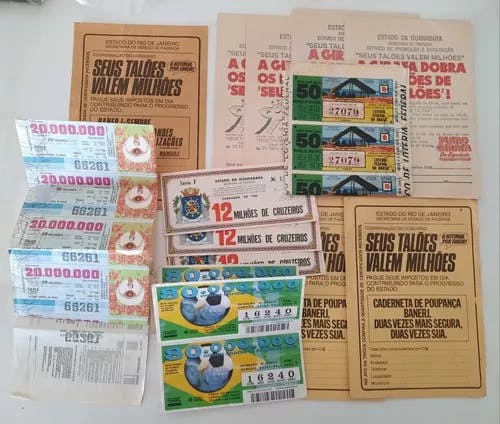
The market for historical lottery tickets is booming, with auctions held by renowned houses like Sotheby’s and Christie’s. Online platforms such as eBay and Catawiki also offer a wide variety of tickets, making the hobby accessible to different audiences.
Average Price: Common tickets can be purchased for $10 to $50, while rare or historical tickets can fetch thousands of dollars.
Collector Communities: Forums and social media groups bring together enthusiasts to share tips, stories, and appraisals.
Documentation: Certificates of authenticity are essential to ensure a ticket’s value and provenance.
The Stories Behind the Tickets
The Forgotten Ticket of 1903:
A 1903 French lottery ticket was discovered decades later in an old book, revealing an unclaimed fortune. Although the prize could no longer be redeemed, the ticket was auctioned for $15,000.
The National Lottery Museum Collection (Spain):
This museum houses an extensive collection of old tickets, including examples from the famous Spanish Christmas Lottery, which dates back to the 18th century.
The Denied Prize Ticket:
In the 1950s, an Irish ticket was rejected due to a printing error. Years later, it became a rare and highly valued item among collectors.
Paper Treasures: The Legacy of Lottery Tickets in the Collectors’ Market
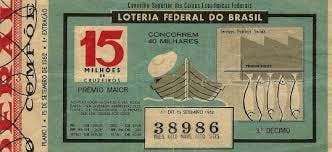
Lottery tickets, which once symbolized dreams of instant wealth, now hold a special place in the world of collectibles. Their stories of rarity, artistry, and historical impact continue to captivate passionate audiences willing to invest time and money in preserving these fragments of history.
Whether as reflections of an era or symbols of luck, lottery tickets have proven that their value extends far beyond the prize. For collectors, every ticket tells a unique story, perpetuating the fascination with a universe where luck meets history.